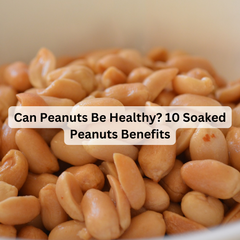Apricots are the aromatic cousin of peach, nectarine, plum, and cherry, with a mellow, glossy skin in yellow to deep orange colors. When the flesh is ripe and juicy, there is a huge kernel hidden inside that falls out easily. Apricot health benefits are unbeatable; it is a coveted fruit to help with digestion, constipation, earaches, fever, skin ailments, and anemia. Apricots can also help with heart health, strained muscles, and wound healing.
Apricot is also believed to be effective for the skin, which is why it is included in a variety of cosmetics. Even the kernel of the fruit packs a punch of nutrients that is great to improve skin health. Apricots can also help to lower cholesterol, prevent vision degradation, aid in weight loss, increase bone strength, and maintain electrolyte balance in the body.
Prunus armeniaca is the scientific name for apricots, however, the term apricot means “precious” in Latin which we totally get why. Underneath the thin outer layer is delicate, tangy flesh. Potassium, vitamin C, and fiber are all abundant in Red apricots. They also include a moderate amount of protein and are high in vitamin A, beta carotene, calcium, and iron. Antioxidants are provided by the polyphenols found in their redskins. Red apricots are best when eaten fresh. A large pit in the center of the apricot is inedible, so be careful while taking that first big bite. They're usually yellow or orange in color, with a hint of reddish on one side.
Nutrition Facts about Apricots:-
Serving Size - 70g
- Calories: 34
- Carbs: 8 grams
- Protein: 1 gram
- Fat: 0.27 grams
- Fiber: 1.5 grams
- Vitamin A: 8% of the Daily Value (DV)
- Vitamin C: 8% of the Daily Value
- Vitamin E: 4% of the Daily Value
- Potassium: 4% of the Daily Value
Precautions -
However, diabetic patients should eat fresh apricots rather than dried apricots because dried apricots are high in sugar.
6 Surprising Benefits of Apricots:-
Boost Your Heart Health -
Apricots are a great way to keep your heart healthy and prevent problems like atherosclerosis, heart attacks, and strokes. Vitamin C, potassium, and dietary fiber, all of which are high in vitamin C, contribute to healthy cardiovascular health. dietary fiber scrapes the extra cholesterol from the lining of the vessels and arteries, cleaning them and lowering the strain on the heart. potassium reduces blood pressure by easing the tension of blood vessels and arteries, whereas potassium lowers blood pressure by relaxing the tension of blood vessels and arteries. Overall, apricots include qualities that make them suitable for improving heart health.
Rich in antioxidants -
Many antioxidants, such as beta carotene and vitamins A, C, and E, can be found in apricots. Furthermore, they are high in flavonoids, a type of polyphenol antioxidant that has been proved to protect against diseases including diabetes and heart disease. The principal flavonoids contained in apricots are chlorogenic acids, catechins, and quercetin. Free radicals are toxic molecules that damage your cells and produce oxidative stress. These substances work to neutralize them. Obesity and many chronic diseases, such as heart disease, are connected to oxidative stress.
Hydrates your body -
Apricots, like other fruits, contain a lot of water, which can help with blood pressure, body temperature, joint health, and heart rate management. A cup (165 grams) of fresh sliced apricots yields around 2/3 cup (142 ml) of water. Because most individuals do not consume enough water, eating fresh fruit might assist you in meeting your daily requirements.
Increase Your Metabolism -
Potassium and sodium are the key minerals that control fluid levels throughout the body. The high potassium content of apricots has been related to maintaining body fluid balance and ensuring that energy is transferred properly to the organs and muscles. You can have more energy, reduce cramps, and keep blood and useful energy flowing through your body as needed by maintaining a proper electrolyte balance.
Beneficial for your skin -
Apricots may be beneficial to your skin. Environmental factors such as the sun, pollution, and cigarette smoke are the primary causes of wrinkles and skin damage. Furthermore, research shows a correlation between UV radiation exposure, sunburns, and your risk of developing melanoma, a lethal form of skin cancer. Vitamins C and E, both of which are abundant in this fruit, may be beneficial to your skin. By neutralizing free radicals, vitamin C protects against UV damage and pollution. Additionally, this vitamin aids in the formation of collagen, which provides your skin its strength and flexibility. Vitamin C-rich foods can aid in the healing of UV-damaged skin and the prevention of wrinkles.
Rich in fiber -
Fiber is a great way to bulk up your stool. It becomes easier to transfer via the bowels and eventually expulsed from the body in this manner. Fiber encourages the production of gastric and digestive fluids, which aid in the absorption of nutrients and the breakdown of food for simpler digestion. Furthermore, fiber stimulates the peristaltic activity of the digestive tract, which is responsible for maintaining regular bowel motions. As a result of its laxative effects, apricots are frequently suggested to patients who suffer from constipation frequently.
Good for bones -
Calcium is essential for bone building and development, It's also worth noting that without enough potassium in the body, calcium is not evenly absorbed and disposed of. Apricots are high in calcium, phosphorus, manganese, iron, and copper, which are all essential minerals for bone formation. As a result, eating apricots can help you maintain healthy bone growth and development, as well as avoid age-related bone diseases like osteoporosis.
How to Store Apricots?
Apricots are best kept at room temperature until ripe then placed in a plastic bag or container in the fridge for three to five days. If you keep them outside, remember to keep them out of direct sunlight to get the maximum nutrition benefits of apricot.
How to Add Apricots to Your Diet?
Apricots, both fresh and dried, provide a quick and delightful snack or complement to your favorite meal.
Mixed Dry Fruit salad
- Mixed into granola or trail mix
- Enhanced the flavor of pies, cakes, and pastries
- Can be used in making jam and salsas.
- Chopped and added to salads or yogurt
- Can be eaten fresh as a snack
- Mix chicken, apricots, almonds, veggies, and a lemon vinaigrette in a pasta salad.
Apricots are a tasty fruit that is high in vitamins, fiber, and antioxidants. They have several advantages, including better eye, skin, and gastrointestinal health.
Apricots, whether fresh or dried, are simple to include in yogurt, salads, and main courses.
If you are looking for alternatives to peaches and plums, apricots might be a great way to switch things up and aid in maintaining the good health of the body.
 Deal of the week : Trial Snack Box - 18 Wholesome Delights Just at ₹ 899.00
Deal of the week : Trial Snack Box - 18 Wholesome Delights Just at ₹ 899.00





















